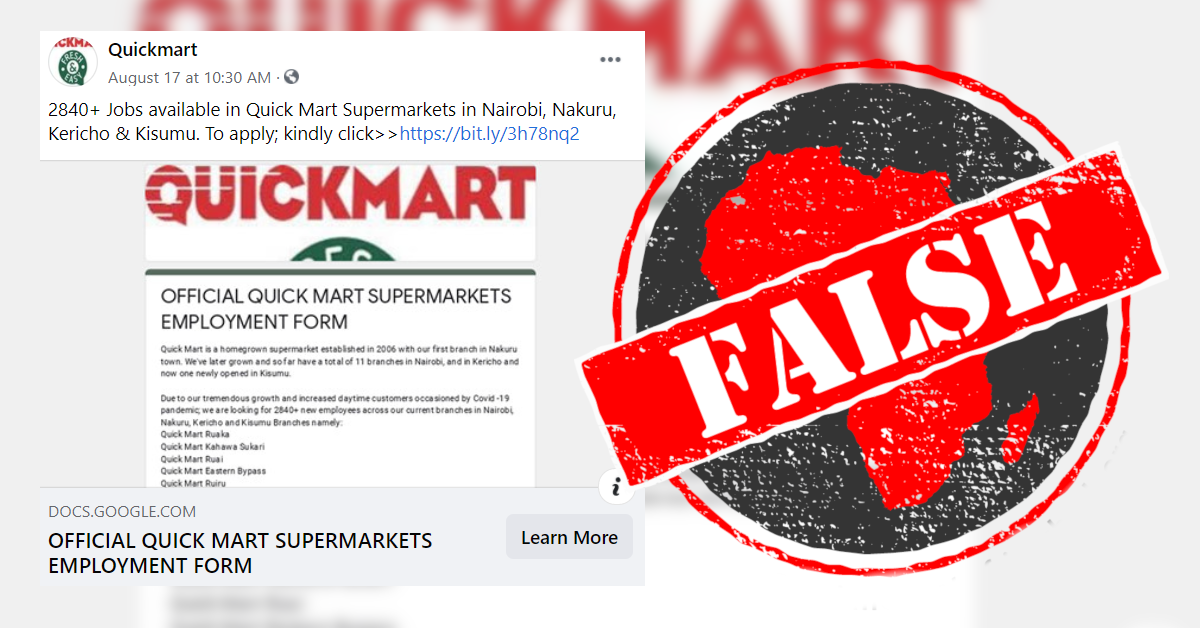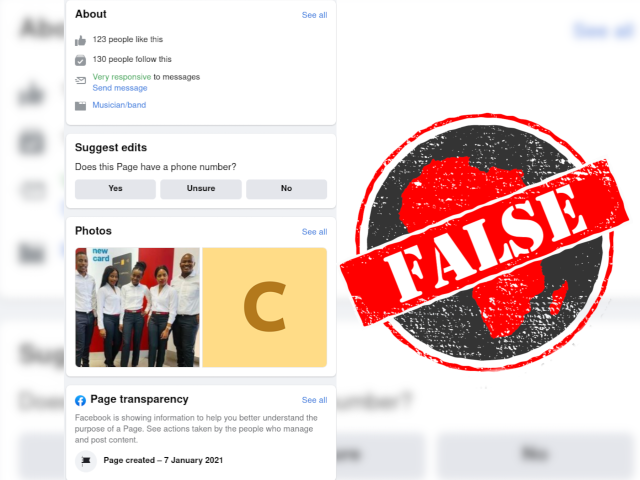The page uses the well-worn scam of offering people fake jobs and then charging them a registration or application “fee” to apply.
It was created on 18 March 2020, is managed by four people in Kenya and uses the retailer’s logo. But the website it gives under its “about” section links to a Google Form, not the official Quickmart site.
So far, the page has posted three job offers with almost the same wording: “2840+ Jobs available in Quick Mart Supermarkets in Nairobi, Nakuru, Kericho & Kisumu. To apply; kindly click ... ” It then links to the Google Form.
On the form, job seekers are told they must pay a registration fee of KSh470 to apply. The transfer must be done via M-Pesa mobile money transfer to the number 0748 292 649.
These are all common signs of a scam. Ignore the page, save your money and look elsewhere for a job.

‘Applications asking for fees are fraudulent’
On 17 July, Quickmart supermarket posted a warning about job scams on its official Twitter account.
“Kindly note. We are NOT advertising job opportunities at this time. Any applications asking for fees to apply are fraudulent. Please avoid them,” the tweet reads.
Kindly note. We are NOT advertising job opportunities at this time. Any applications asking for fees to apply are fraudulent. Please avoid them. #StopFakeJobs pic.twitter.com/VI8InjJHBD
— Quickmart (@QuickmartKenya) July 17, 2020
Legitimate companies and employment agencies do not charge people any fee to apply for jobs.
Africa Check emailed Quickmart to ask about the fake page.
“Please be advised that the various online job advertisements are fake and are meant to defraud the public,” they told us.
“Our genuine Facebook page is Quickmartkenya (facebook.com/quickmartkenya). The rest of the pages purporting to be Quickmart are fake.
“In addition, we do not charge any fees to job seekers, applicants can present their applications through any of our branches for consideration.”
See Africa Check’s guide to Facebook scams and how to spot them to find out more. – Grace Gichuhi
Republish our content for free
For publishers: what to do if your post is rated false
A fact-checker has rated your Facebook or Instagram post as “false”, “altered”, “partly false” or “missing context”. This could have serious consequences. What do you do?
Click on our guide for the steps you should follow.
Publishers guideAfrica Check teams up with Facebook
Africa Check is a partner in Meta's third-party fact-checking programme to help stop the spread of false information on social media.
The content we rate as “false” will be downgraded on Facebook and Instagram. This means fewer people will see it.
You can also help identify false information on Facebook. This guide explains how.



Add new comment